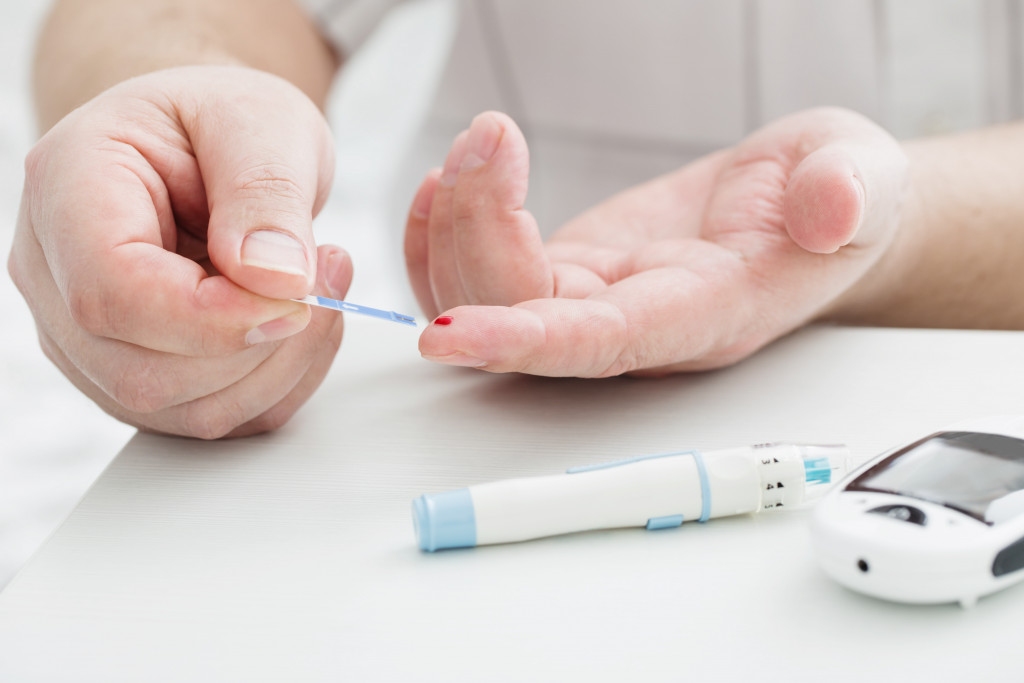The human body is incredibly complex and sensitive, especially regarding women. Women’s hormones play a crucial role in maintaining overall health and well-being. Unfortunately, hormones can lead to severe illnesses and diseases when out of balance. Here’s how hormonal imbalances can lead to disease in women.
What Are Hormones?
Hormones are chemical messengers that help regulate many of the body’s processes. For example, they help maintain a healthy metabolism, energy levels, moods, and more. Here are two primary hormones that women have and how it affects their bodies.
The Role of Estrogen
Estrogen is the primary female hormone that plays a significant role in reproductive health and development. It helps regulate a woman’s menstrual cycle by controlling the production of other hormones like progesterone and testosterone.
When estrogen levels drop at specific points in a woman’s life—like during menopause—it can cause side effects like hot flashes and night sweats and an increased risk for osteoporosis due to bone density loss over time, additionally, low estrogen levels have been linked to an increased risk for breast cancer and obesity later in life.
The Role of Progesterone
Progesterone is another important hormone that helps regulate the menstrual cycle by balancing out estrogen levels in the body. It helps prepare the uterus for pregnancy by thickening its lining so that it’s ready for a fertilized egg if one should arrive; if no egg comes after ovulation has occurred, then progesterone will begin to decline as part of the menstrual cycle process, which results in shedding of the uterine lining (i.e., menstruation).
Low progesterone levels have been linked to infertility due to lack of ovulation as well as an increased risk for miscarriages due to weak uterine lining strength if an egg does manage to be fertilized successfully but cannot attach itself properly or sustain itself inside the uterus until full-term delivery occurs (which is why early pregnancy monitoring is so important!).

How Hormonal Imbalance Affects Your Life
Hormonal imbalance is common for women, but it can be problematic if they stay too long. Here are some common diseases that go along with hormonal imbalances.
Periodontal Disease
One of the most common diseases associated with hormonal imbalance is periodontal disease. Hormonal fluctuations can cause your gums to become inflamed and irritated, which makes them prone to bleeding. The inflamed tissues also allow bacteria to thrive in the mouth, causing infections and gum deterioration that leads to tooth loss.
Dentists suggest that women experiencing hormonal balance should have good oral health. They should also replace teeth they might have lost, as these can be a haven for bacteria. A robust fake tooth can reduce the chances of future infections. It can also ensure that your gums stay safe and healthy from bacteria.
Thyroid Disorders
The thyroid is an endocrine gland located at the base of your neck, and it secretes hormones that regulate metabolism, heart rate, body temperature, and other bodily functions. When your thyroid produces too much or too little of these hormones, it’s known as a thyroid disorder. Hyperthyroidism is when your thyroid produces excess hormones, while hypothyroidism is when your thyroid produces too few hormones. Both conditions can lead to various symptoms, such as fatigue, weight gain or loss, joint pain, depression, anxiety, and more.
Polycystic Ovary Syndrome (PCOS)
PCOS occurs when your ovaries produce higher than normal male hormone androgens. This leads to enlarged ovaries with small cysts that contain immature eggs that don’t release appropriately during ovulation. The most common symptoms are irregular menstrual periods, acne or oily skin problems, excessive hair growth, thinning hair on the head (alopecia), obesity, or rapid weight gain/loss due to hormonal changes in metabolism. PCOS can be treated with lifestyle modifications such as healthy dieting and exercise and medications like oral contraceptives to manage symptoms caused by hormone imbalances.
Major Depressive Disorder (MDD)
While depression is a common mental health issue, hormonal imbalances can also play a role in its development. For example, women going through menopause tend to experience mood swings and other depressive symptoms due to disrupted hormone levels. Similarly, those with hypothyroidism (which is caused by low thyroid hormone production) are at an increased risk for depression due to the hormonal changes involved.
If you’re experiencing any of these symptoms, you must see a doctor and get proper treatment for your condition. In many cases, this involves taking hormonal supplements or medications that can help restore balance to your system and prevent more severe health issues.
Hormonal imbalances can affect many areas of your life, from physical health to mental well-being. By understanding the symptoms and risks associated with hormonal imbalance, you can take steps to prevent or manage these conditions.



